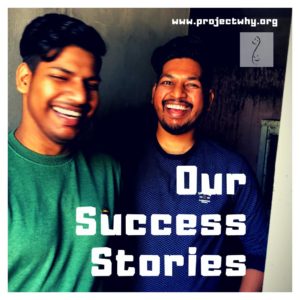The bete noire of any not-for-profit organisation is undoubtedly its sustainability particularly if one views such work as having a duration in space and time. Education above all does not make any sense if its temporality is limited to the ‘bon vouloir’ of funding agencies.
This is one of the reason that we, from day one, shunned instructional sources of funding as they are far too often linked to too many ‘ifs’ and ‘buts’. We preferred a far larger funding group namely individuals.
I cannot even remember when I first thought of the one-rupee-a-day option, but in spite of its Herculean administrative hassles, it intuitively felt right from the instant it sprung in my mind.
Then like so many of us, I got swayed by others and the ideas that they mooted ad nauseam. As everyone seemed to view my idea with an array of negative reasons ranging from doubts about its difficult execution to cynical remarks about its every essence I played along and began our quest for sustainability which burnt a huge hole in our tiny resources and covered a range of activities: paper and jute bags, costume jewels, nutritive biscuits, baby clothes, bio-diesel plant nurseries, soaps, chocolates.. the list is endless and met with as many obstacles: lack of adequate outlets, competition that one could not meet, licence and permit raj but above all the total refusal of people to give up their salary syndrome, something that I believe is particular to Delhi.
Somehow when people set foot in India’s capital city – @ of over 600 a day says recent statistics, they somehow feel they earned the right to the elusive government job. I can cite countless instances of simple people having paid unfathomable sums to touts to get them a government job. Wonder how rich they and self sufficient they could have become had they invested that amount in something as simple as a chai shop. So it becomes impossible to get people to shed that attitude and take their lives in their own hands. Now basing our sustainability on such efforts, was a recipe for disaster as we learnt the hard but necessary way.
So we are back to square 1 and to the magic number 1 as this is the only way we can flip the existing equation. I have always held that development and change will come from the bottom when every one is aware of his/her responsibility in the democratic and civic process. As long as we carry on dispersing hand outs things cannot change as the process entails immobility: the giver gives and the recipient takes.
We have seen in the recent past many things move when people got involved albeit thanks to the oh so powerful media. A rupee a day gives everyone the possibility of altering his/her status irrespective of caste, creed, or economic background and of taking an active part in change.
It is a uphill task, one that will take time as we move with baby steps. But it is the only one that will esnure duration and multiplication. Till then we will need support and we hope that it will be in the form of 1 rupee donors so that we can evolve a strategy and put it to test.
In her second novel, Leonora Miano a writer from Cameroun talks about women taking charge of their own destiny, as this activist writer strongly believes that the new tomorrow will dawn on her continent only when Africans themselves take charge. This is a lesson that transcends continents, one I hope we learn soon.
Powered by Qumana



